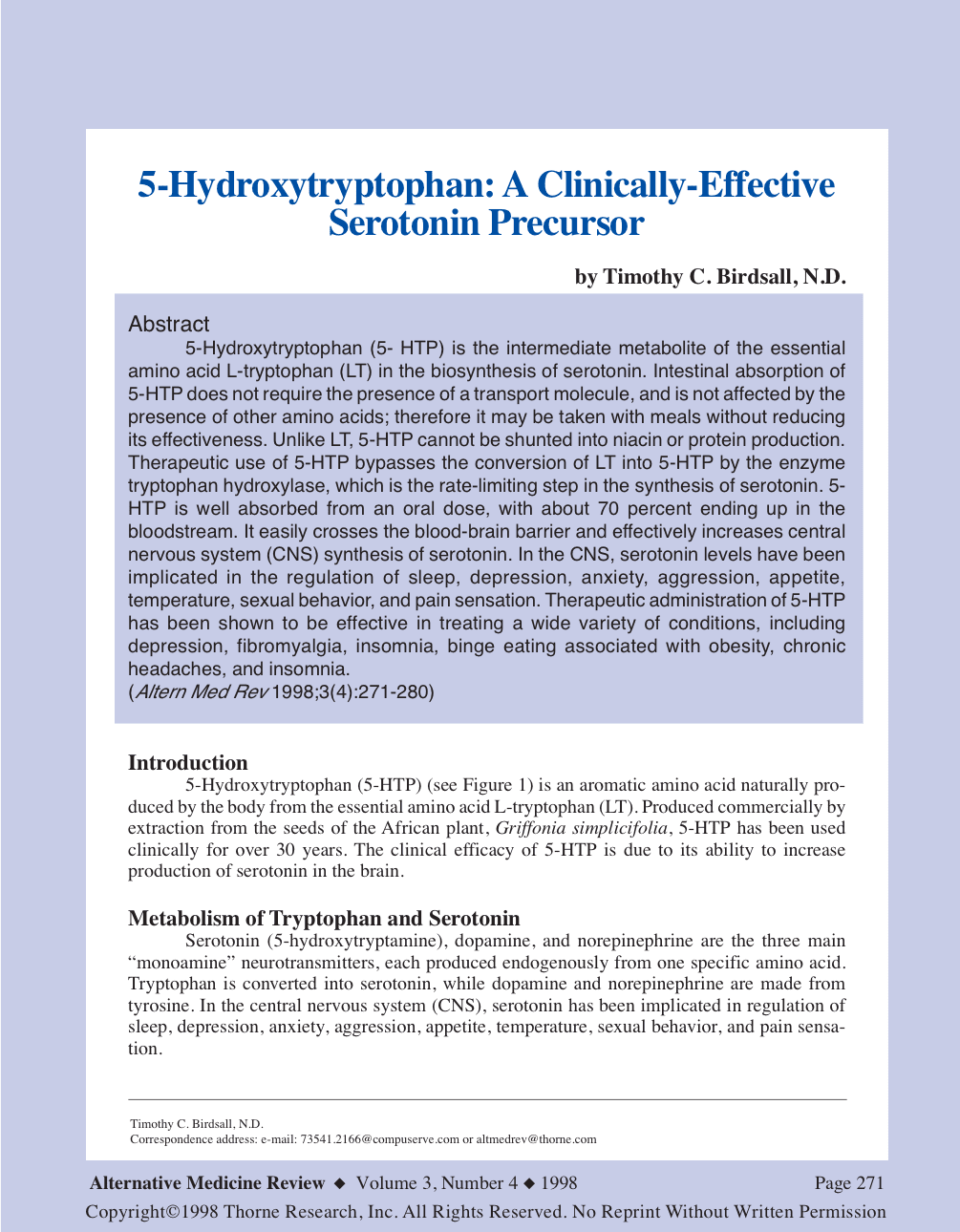Abstract
5-Hydroxytryptophan (5HTP) is the intermediate metabolite of the essential amino acid L-tryptophan (LT) in the biosynthesis of serotonin. Intestinal absorption of 5-HTP does not require the presence of a transport molecule, and is not affected by the presence of other amino acids; therefore it may be taken with meals without reducing its effectiveness. Unlike LT, 5-HTP cannot be shunted into niacin or protein production. Therapeutic use of 5-HTP bypasses the conversion of LT into 5-HTP by the enzyme tryptophan hydroxylase, which is the rate-limiting step in the synthesis of serotonin. 5HTP is well absorbed from an oral dose, with about 70 percent ending up in the bloodstream. It easily crosses the blood-brain barrier and effectively increases central nervous system (CNS) synthesis of serotonin. In the CNS, serotonin levels have been implicated in the regulation of sleep, depression, anxiety, aggression, appetite, temperature, sexual behavior, and pain sensation. Therapeutic administration of 5-HTP has been shown to be effective in treating a wide variety of conditions, including depression, fibromyalgia, insomnia, binge eating associated with obesity, chronic headaches, and insomnia. (Altern Med Rev 1998;3(4):271-280)







